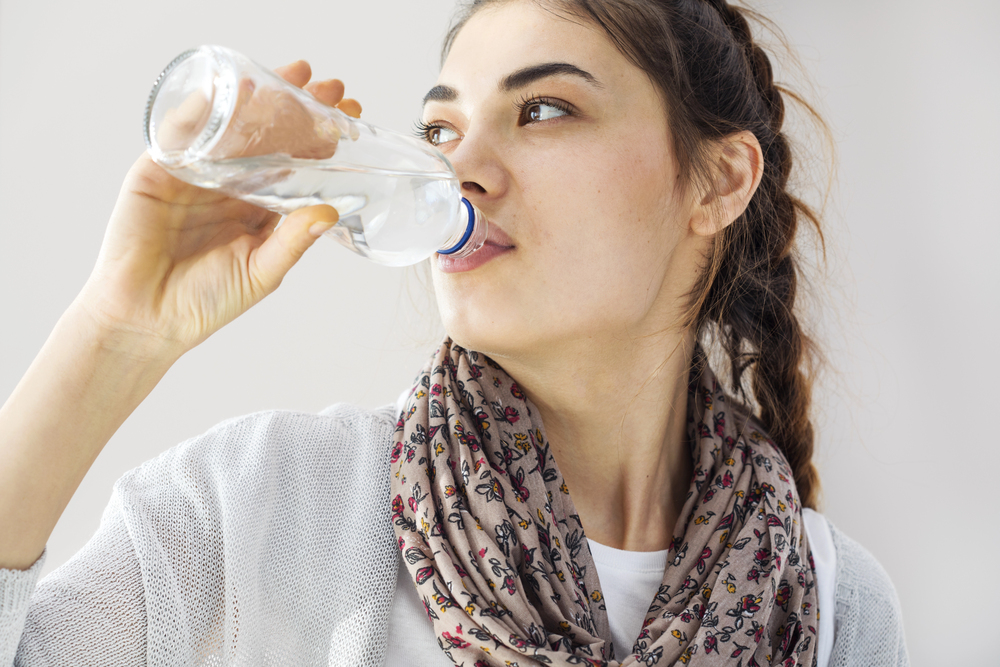Don’t Forget to Hydrate This Winter

by Annette Pinder
When temperatures drop in Western New York, our usual thirst cues fade. According to an article by Massachusetts General Hospital about the importance of winter hydration,
exposure to cold constricts the blood vessels that keep our core warm, causing our thirst to decrease by as much as 40%. Additionally, dry indoor air from heating systems and the frigid outdoor air sap moisture from our skin and lungs, even when we’re barely aware of it. We also sweat less visibly in cold conditions, causing us to feel less thirsty and drink less. However, our bodies still need similar amounts of fluid as in warmer months. Warm, layered clothing often makes us warmer than we think, leading to unnoticed sweat and fluid loss. The kidneys may also excrete more urine in cold conditions, further increasing fluid loss. Combine that with hot caffeinated drinks, shorter daylight hours, and the busy pace of winter errands (such as snow clearing and indoor shifts), and you have a recipe for unintended dehydration.
Hydration isn’t just about quenching thirst; water supports every cell, tissue, and organ. It helps regulate body temperature, cushions joints, promotes healthy digestion, and keeps your immune system strong during winter’s cold and flu season. For Buffalo residents facing cold blasts and indoor heating, staying hydrated is crucial to maintaining resilience, energy, and a good mood. Even mild fluid loss can cause fatigue, headaches, dry skin, irritability, or foggy thinking. For older adults, dehydration raises the risk of urinary tract infections, falls, or confusion. Studies by the American Heart Association also show that poor hydration in winter is linked to worse vascular (blood-vessel) function and slower recovery from illness.
Signs of dehydration in winter include dry, chapped lips and skin, especially after being outside in the wind; headaches, lightheadedness, or trouble concentrating; fatigue or irritability that seems disproportionate; dark yellow urine or infrequent bathroom visits; or muscle cramps, joint stiffness, or mild dizziness. If you notice one or more symptoms, boost your fluid intake. Severe dehydration—characterized by a rapid heartbeat, very dark urine, confusion, or fainting—needs immediate medical attention.
The following are some simple ways to stay hydrated.
- Keep a refillable bottle nearby and sip from it frequently, rather than waiting until you’re thirsty.
- Warm fluids count! Herbal tea, hot water with lemon, or broth-based soups all help with hydration.
- Eat water-rich foods, such as apples, oranges, cucumbers, and leafy greens.
- Wear layers, but take off outer layers as you warm up to prevent unnoticed sweating.
- Use a humidifier indoors to counteract dry heating air and help prevent moisture loss from your skin and lungs.
- Set reminders: Your body’s thirst signals might be less noticeable during this time of year.
Even if you don’t feel as thirsty in cold weather, your body still requires the same effort to maintain proper fluid balance as during warmer months. Staying hydrated supports your body, mind, and immune system—and helps you make the most of winter, rather than letting it diminish your energy.









